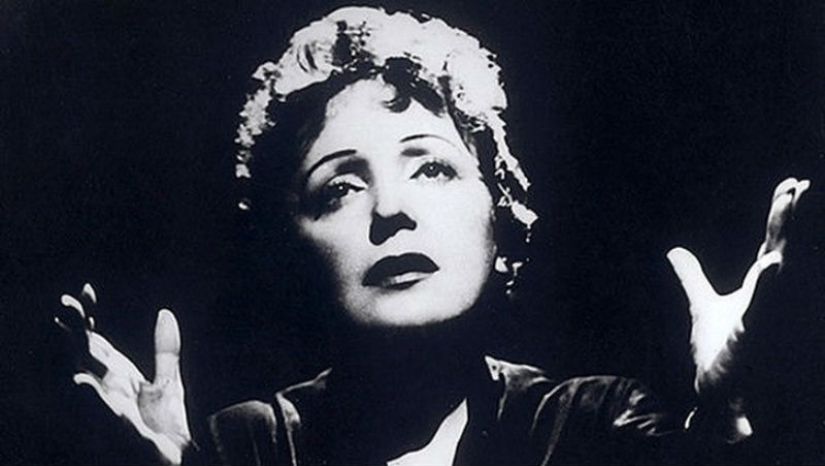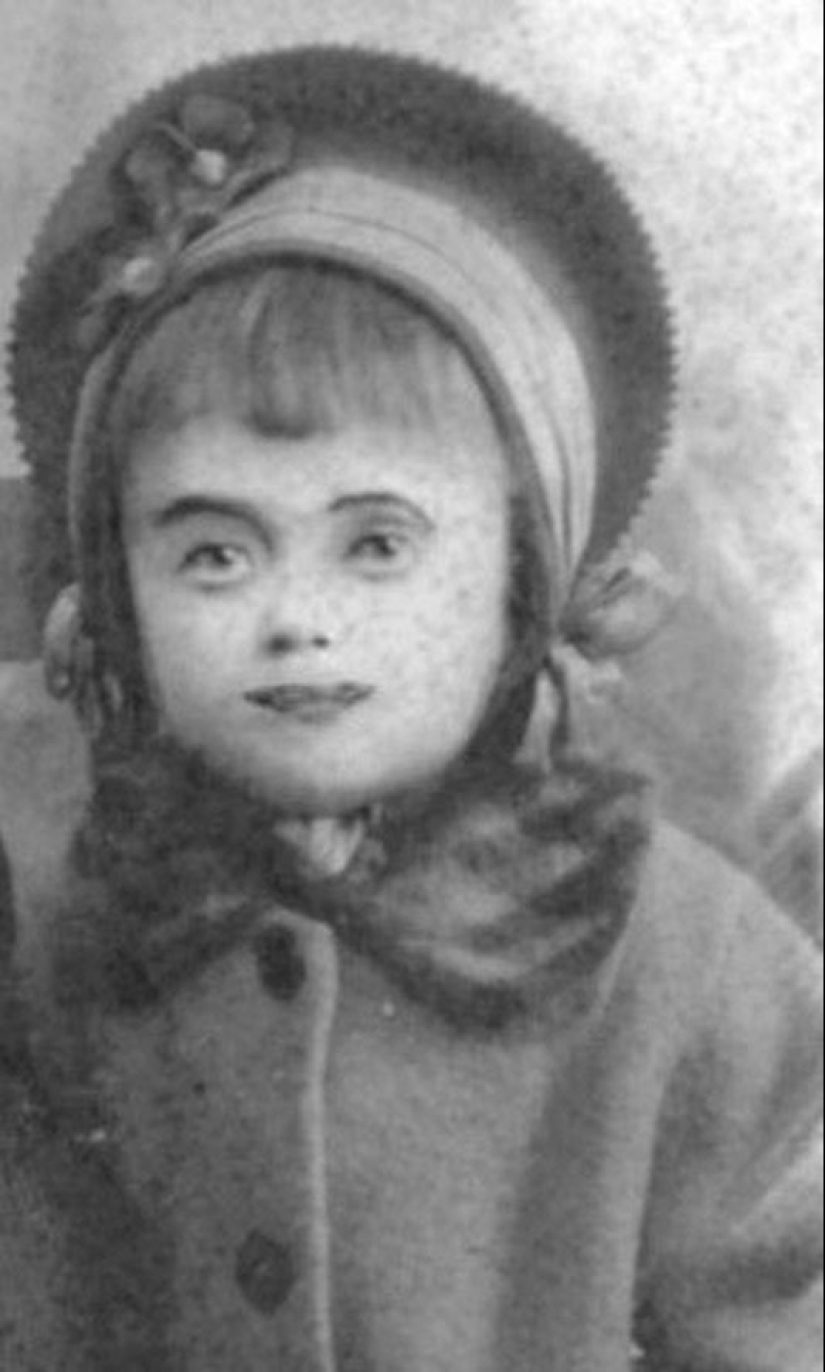"Her life is so sad that the story about her seems implausible": the great tragedy of Edith Piaf
Categories: Celebrities
By Pictolic https://pictolic.com/article/her-life-is-so-sad-that-the-story-about-her-seems-implausible-the-great-tragedy-of-edith-piaf.htmlWho does not know the greatest French singer, whose songs have become world hits, and she herself is an example for millions to follow? But not everyone knows how many trials it had to share. She survived a difficult — almost starving-childhood, the death of a child, 2 car accidents, 7 surgeries, 3 comas, several attacks of delirium tremens, an attack of insanity, an attempted suicide, two world wars.
She did not survive only the last stage of liver cancer, which was found in her 2 years before her death. And if you ever again want to complain about your fate, just remember the "sparrow" of Paris, a woman who until the last days went forward, not giving up, conquering the hearts of millions, inspired and gifted with the power to love-Edith Piaf.


Edith Piaf (real name — Edith Giovanna Gasion) was born on December 19, 1915. Almost on the same day, the girl's mother-the would-be actress Anita Mayar-while her husband was at the front, gave the girl to her mother to raise. But she did not need it — to calm the girl who was interfering with her crying, the "loving" grandmother fed the child with diluted wine. This feeding bore fruit — by the age of three, Edith was completely blind.

Later, there will be a legend associated with the birth of Edith. However, it is unlikely that it corresponds to reality, but according to it, a girl was born under a street lamp in the winter on one of the streets of Paris.

As soon as Edith's father — Louis Gasion — finds out about this, he immediately sends the girl to be raised by his mother, who kept a brothel. However, she fell in love with her granddaughter and took care of her. She did everything to make the girl see clearly. And in 1925, she succeeded. When there was no hope for Edith's recovery, her grandmother took her to Lisieux to see Saint Theresa. A few days later, my beloved granddaughter-oh, a miracle-began to see again.

Edith herself, recalling this, said: "My life began with a miracle. When I was four, I got sick and went blind. My grandmother took me to the altar of Saint Theresa in Lisieux and begged her for my epiphany. Ever since then, I have not parted with the images of Saint Theresa and the infant Jesus. And because I am a believer, death does not frighten me. There was a period in my life after the death of a person dear to me, when I myself called for it. I've lost all hope. My faith saved me."

At school, Edith was immediately disliked, which is not surprising — the girl lived in a brothel. The girl could not bear it, and soon her father took her to Paris. There, a 9-year-old girl begins to work with her father in the squares of the city: the father showed acrobatic tricks, and the daughter sang. Edith never fully learned to read and write — even in the songs that she composed herself, there were mistakes. But who cares now?

At the age of 15, Edith met her half — sister, 11-year-old Simone, who began performing with Edith. My father's new family was experiencing enormous financial difficulties. Edith, in turn, helped them financially, but later this led to the fact that the girl leaves her father. Forever.

Edith continues to perform on the streets, where she is noticed and invited to sing in a cabaret. At the age of 16, Edith met Louis Duppon, the father of her only daughter, Marcel. However, her marriage was unsuccessful — her husband demanded that Edith give up work, and they broke up. Edith's daughter stayed with her for a while, but one day, when Edith did not find her at home, she realized that the girl was with her husband — he expected that then his wife would return. But she didn't come back. Moreover, the girl fell ill with meningitis, and a little later Edith herself became infected, who, however, recovered. But fate did not spare the girl here either-Marcel is dying. Edith had no more children.

At the age of 20, Louis Leplet notices her and invites her to perform on the Champs-Elysees. He played a big role in Edith's life and career: he taught her to choose songs, sing to the accompaniment, explained the importance of costume, facial expressions, behavior, and the artist. It was he who made Edith Gasion Edith Piaf. Even on the street, she sang: "Born like a sparrow, lived like a sparrow, died like a sparrow." On the posters they wrote: "Baby Piaf". It was a success!

But the success did not last long. Soon Louis is killed, and Edith comes under suspicion, as he left her a certain amount. Thank God, this time everything ends well, and soon Piaf meets Raymond Asso — the man who makes Edith a great singer. It is he who seeks her participation in the performance at the ABC music Hall, which was an initiation into the profession. Needless to say, the next day she woke up famous? Thanks to him, the story of Edith's life became the story of songs and vice versa, no one could distinguish the stage image from Edith in reality.

Edith basked in success and fame. After hearing her voice on the radio, people are asked to put Baby Piaf's songs on the air again and again.

During the Second World War, "Little Piaf" meets with Jean Cocteau, who offered her to play in the play "The Indifferent Handsome Man". It was first shown in 1940. A year later, a film was made based on the play, in which Edith played the main role.

It's hard to believe, but Edith Piaf was so popular and in demand that she could afford to perform in front of French prisoners of war. And after the concert, she managed to give them everything they needed to escape. Her fellow countrymen appreciated her personal courage and mercy, because she risked her life.

The post-war period was a time of special success for Edith. Her work was admired by the suburbs of Paris, art lovers around the world, and even the future Queen of England.

Edith helped young talents. Charles Aznavour, Yves Montand, Eddie Constantin… These are not all the names that have become known around the world thanks to "sparrow".

In the post-war years, Edith meets the American boxer Marcel Cerdan, who became her greatest joy and greatest sadness. Fate again played a cruel joke with Edith — in 1949, flying to his beloved from New York, he crashed in a plane crash. Edith fell into a severe depression: she began to drink morphine, after which she had seizures, and once almost threw herself out of a window. She returned to the street. Dressed in old clothes, she performed on the streets of Paris, and at night brought unknown men to her.

But the mourning could not last forever, and Edith once again returns to a solo career. And I was even able to fall in love again.
In 1952, Edith is involved in two car accidents and breaks almost all of her ribs and both of her arms. To ease her suffering, doctors inject her with morphine. It would seem that Edith was doomed to become addicted to drugs, but this fragile woman was not like that. Nevertheless, creativity no longer brought her the same pleasure, but Edith only became more immersed in her work.

In 1954, Edith starred in the historical film "If they Tell Me about Versailles". A little later, she had an 11-month tour in America, and then in France — such loads caused great damage to physical health. And in 1961, fate dealt the strongest blow to the singer – doctors discovered Edith had liver cancer. But she continued to perform until the end of her days.

In recent years, she has been supported by 27-year — old Theo-Piaf's last love. In September 1962, Piaf performed painfully on top of the Eiffel Tower. And six months later, the last concert in her life took place — the hall gave a standing ovation.

On October 10, 1963, Edith Piaf died. The whole of France buried her, and the whole world mourned — an entire era of French chanson died with her.

The songs of Edith Piaf remained with us forever, and the courage and willpower of the singer left an indelible mark on the hearts of people. During her lifetime, an autobiography was published. Whether all that is in it corresponds to reality is unknown. But one thing is clear: this is how she wanted to remain in the memory of people.
"I don't sing for everyone — I sing for everyone."
"Artists and the public should not meet. After the curtain falls, the actor must disappear as if by magic."
"Hands don't lie like faces."
In response to the doctors ' words that she was killing herself, she continued to sing in front of the audience: "This is the most beautiful way to commit suicide."
"I've led a terrible life, it's true. But also-an amazing life. Because, above all, I loved her."
"For love, for happiness, you often have to pay with tears."
"I was hungry. I was freezing. But I was also free. Free not to get up in the morning, not to sleep at night, free to drink if I wanted to, to dream... to hope."
"This is the crowd that I hope will see me off on my last journey, because I don't like being alone. The terrible loneliness that clutches you at dawn or at nightfall, when you ask yourself whether it is still worth living and what to live for?»
Keywords: Paris | France | Celebrities | Singer | Life | Tragedy
Post News ArticleRecent articles

It's high time to admit that this whole hipster idea has gone too far. The concept has become so popular that even restaurants have ...

There is a perception that people only use 10% of their brain potential. But the heroes of our review, apparently, found a way to ...
Related articles

A music album is not only a collection of tracks, but also an example of fine art. Each cover carries a certain meaning, and behind ...

French cinema can easily be called a unique direction in art, which is fundamentally different from what he used to do in ...

King Louis XIV of France, whom the courtiers called the "Sun King", is a very popular person in literature and cinema. We know this ...

New Year's is a time to surprise and delight loved ones not only with gifts but also with a unique presentation of the holiday ...